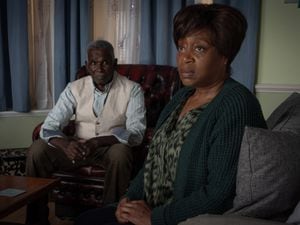Crisis summit needed to tackle festival funding – Labour
The party echoed calls from the chief executive of the Edinburgh Festival Fringe Society.

Scottish Labour are calling on SNP ministers to convene a crisis summit to discuss the future of Scotland’s arts and culture festivals.
The party echoed calls from the chief executive of the Edinburgh Festival Fringe Society Shona McCarthy, who said the government and other agencies should provide more funding.
Glasgow’s Aye Write book festival has been cancelled this year after a funding bid was refused.
Creative Scotland says it is making difficult decisions each day as it can only support around 30% of applications to its open fund.
MSPs are due to debate Scotland’s international culture strategy on Tuesday.
Scottish Labour’s culture spokesman Neil Bibby said: “Scotland’s festival scene is world-famous, but the SNP standing idly by while it collapses.
“We are already seeing the consequences of the SNP-Green government’s disastrous cut to Creative Scotland with the loss of Aye Write, and more could follow if we do not act.
“There must be urgent action to support Scotland’s iconic arts sector and the vast economic, social and cultural benefits it delivers.
“The SNP must urgently convene a crisis summit and develop a plan to save Scotland’s festivals.”
A Scottish Government spokesperson said: “Despite the challenging financial situation faced by the UK, Scottish ministers have increased culture sector funding by £15.8 million to almost £200 million this financial year, as the first step to achieving the First Minister’s commitment to invest at least £100 million more annually in culture and the arts by 2028/29.
“We value the significance of the Edinburgh Festival Fringe and wider Edinburgh Festivals, and are committed to supporting this world-renowned event.
“In 2023/24 and also in 2022/23, we awarded Edinburgh Festival Fringe Society £550,000 for its Made in Scotland programme.
“We will continue to work with the culture sector to identify barriers to immediate and long-term recovery, and do everything within our limited devolved powers and resources to help those most affected by current economic challenges.”





